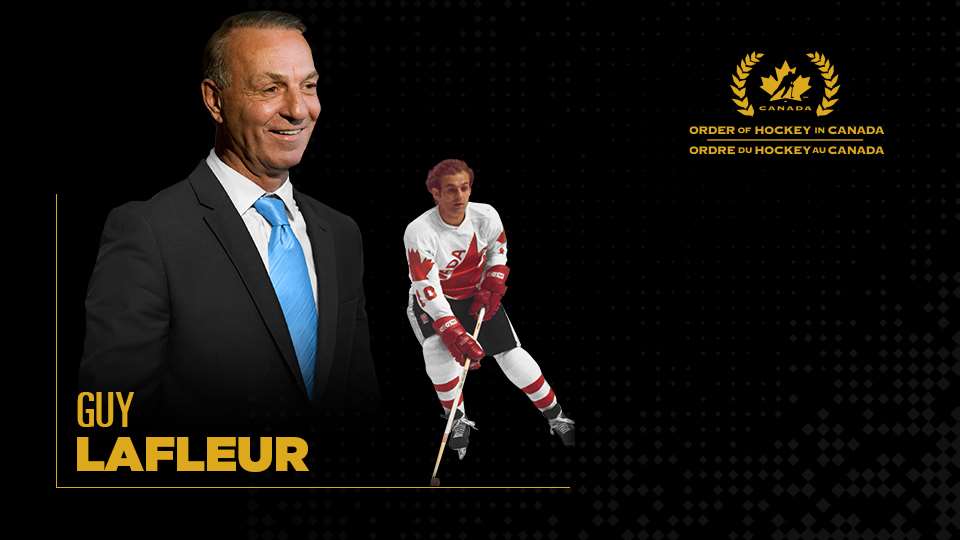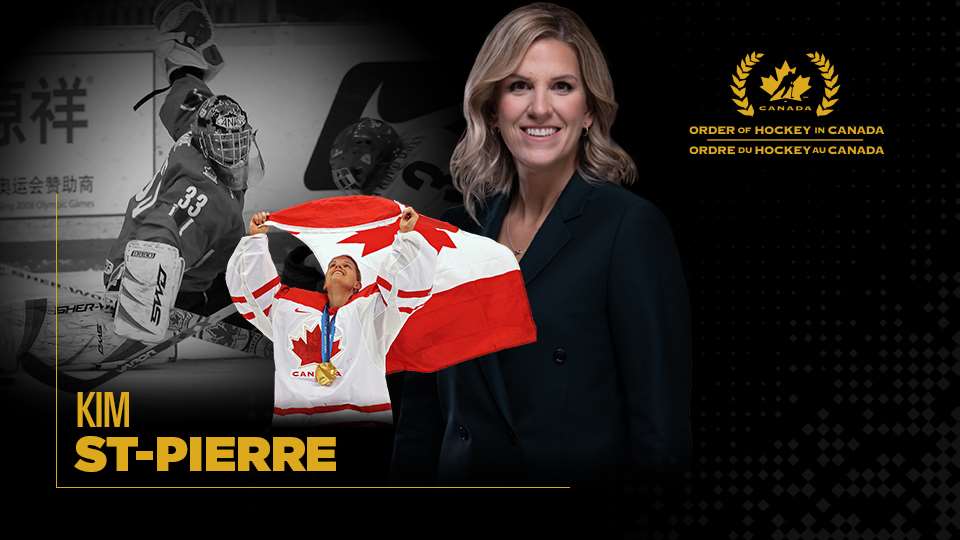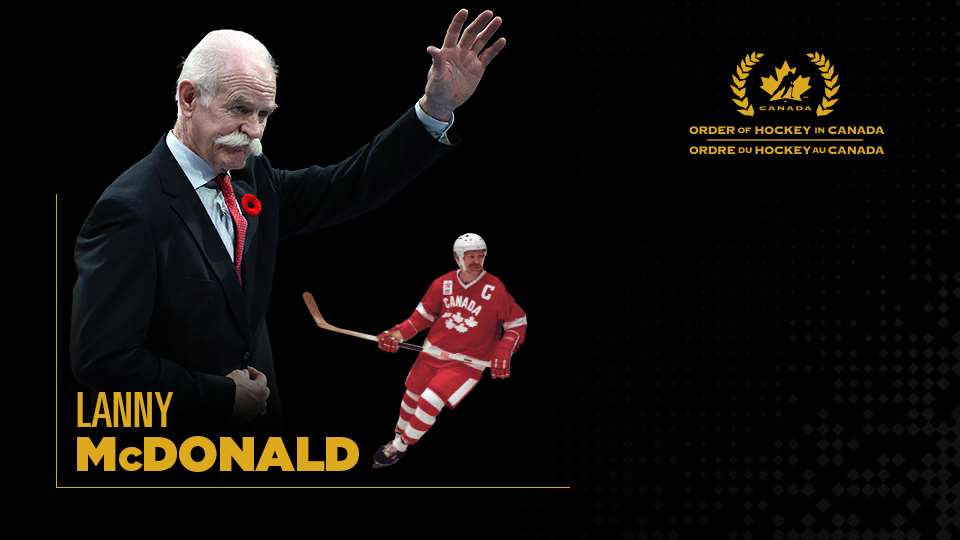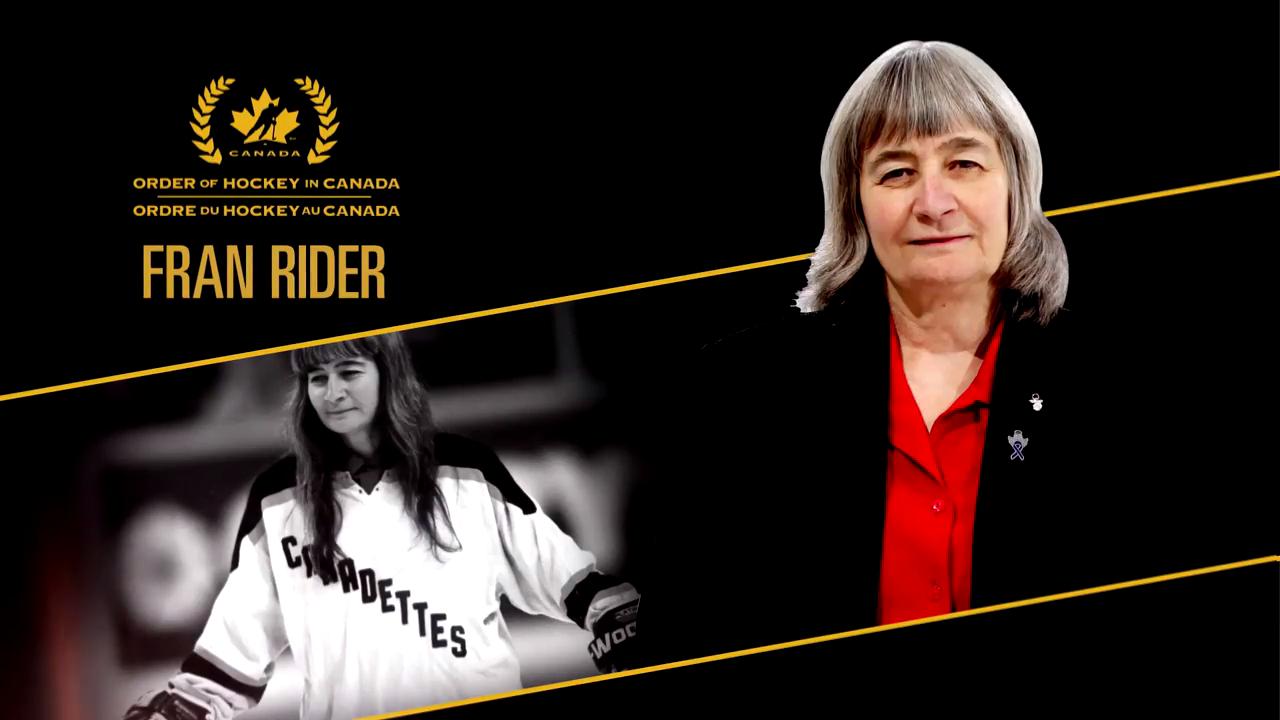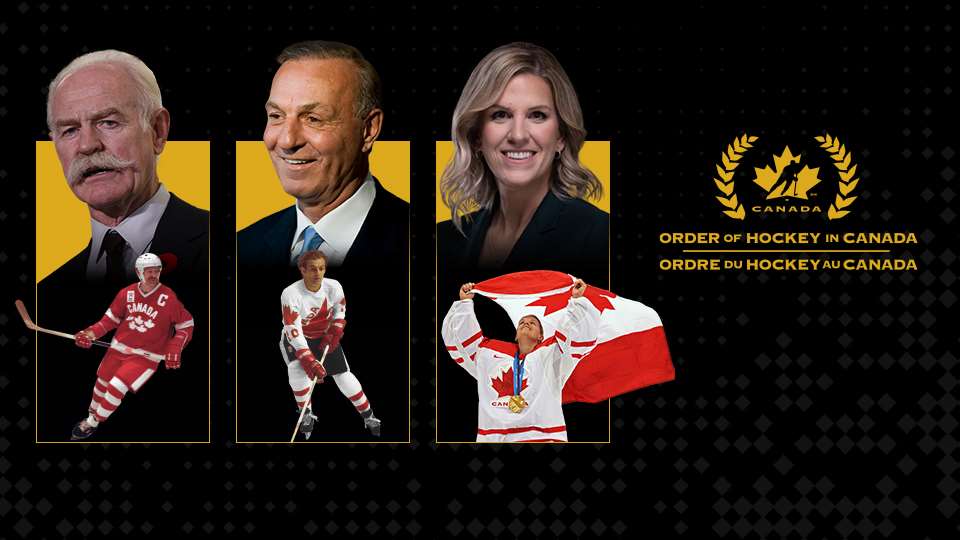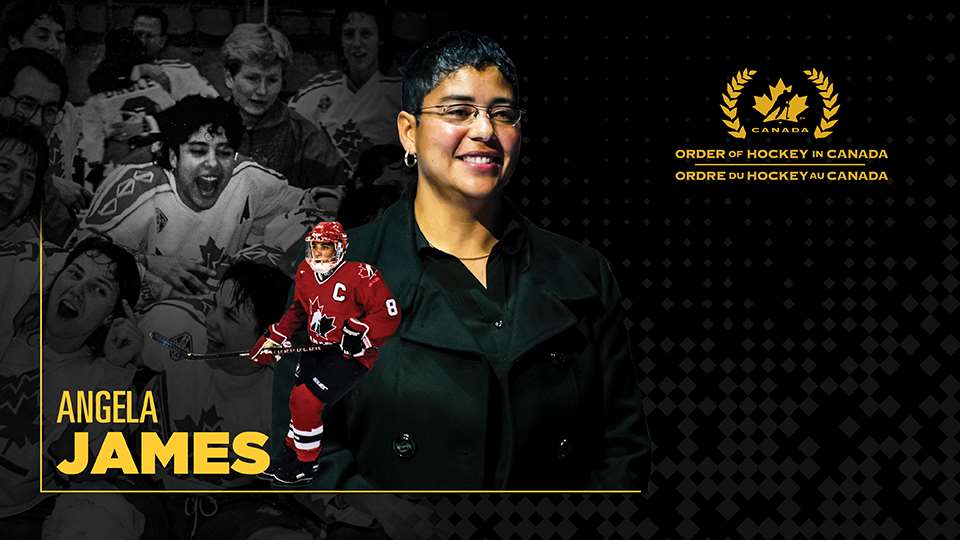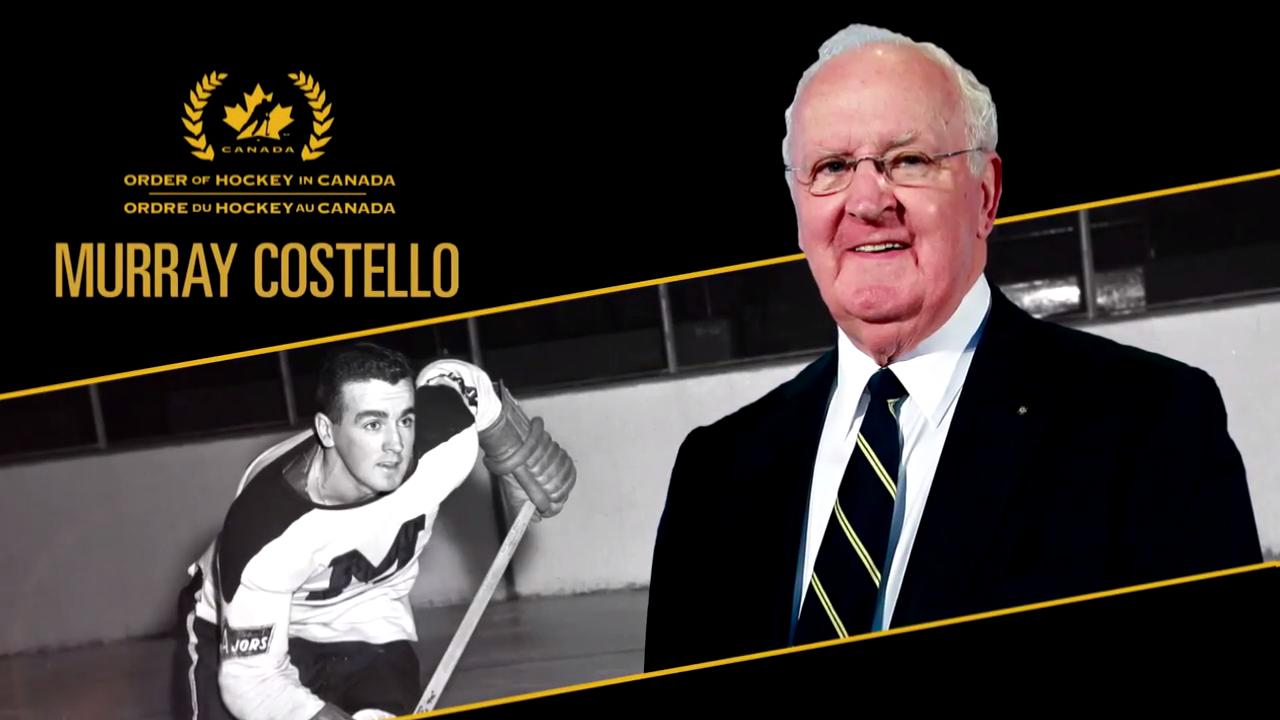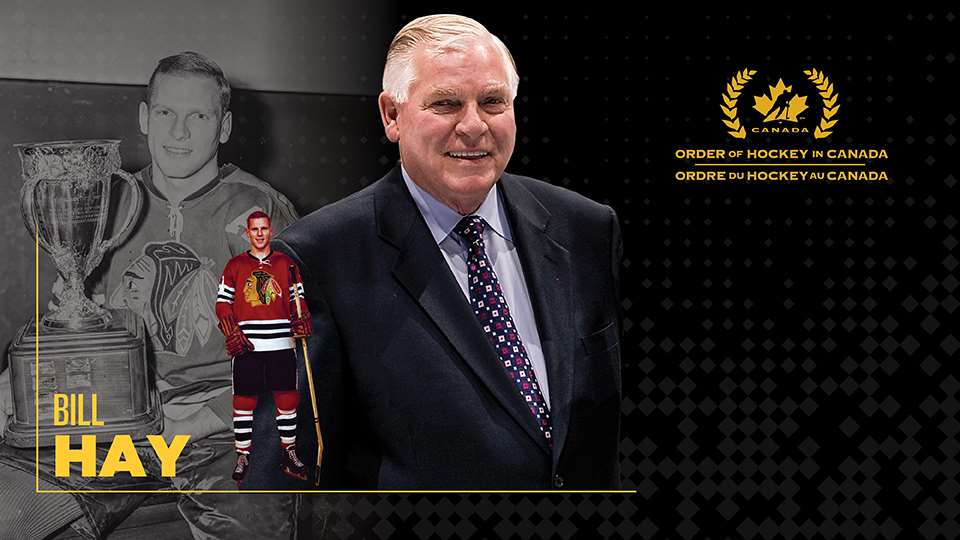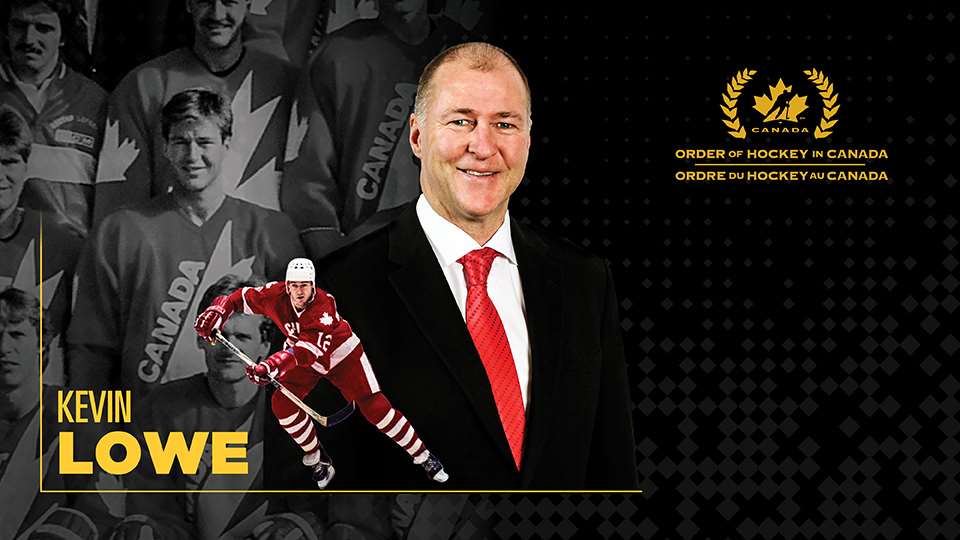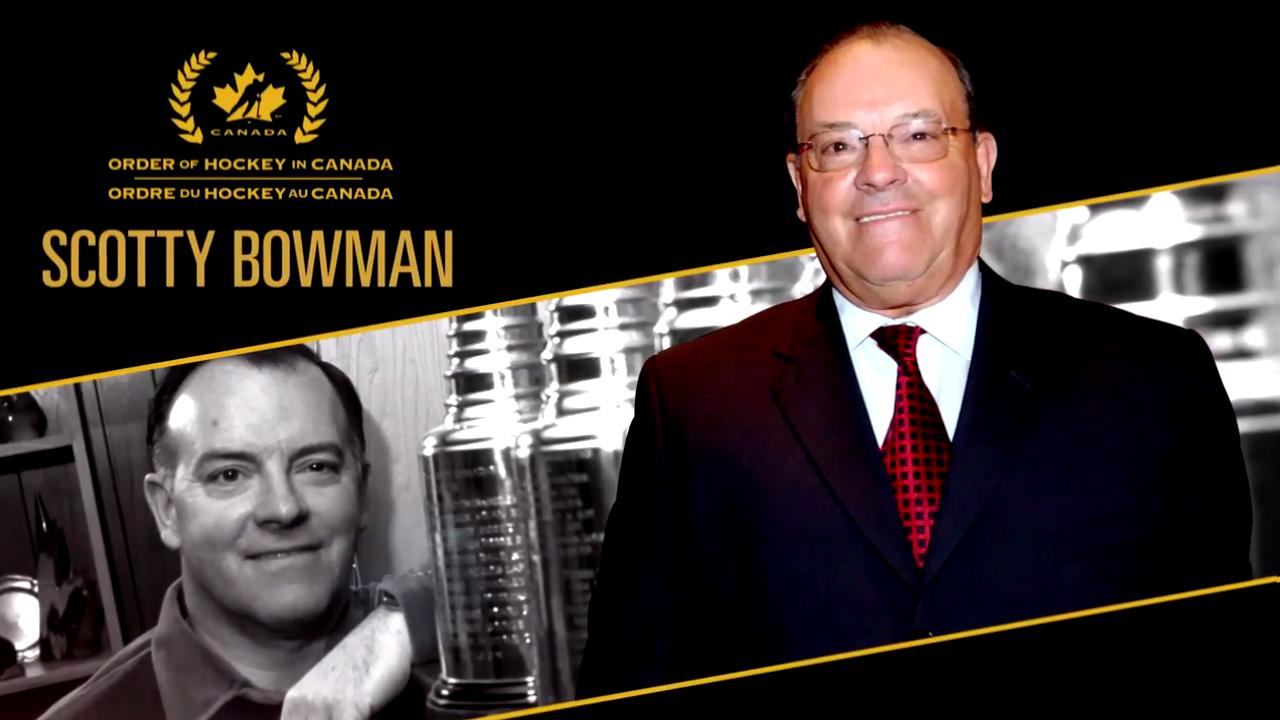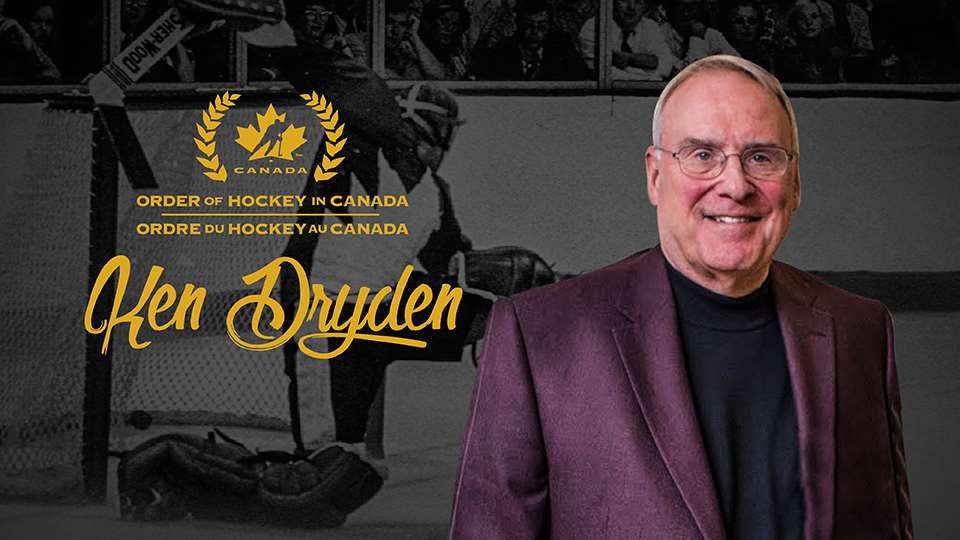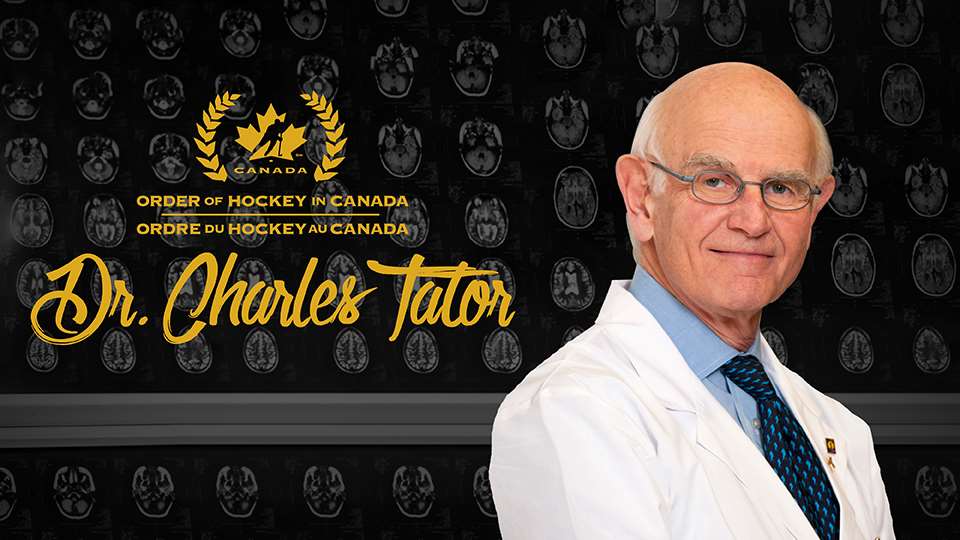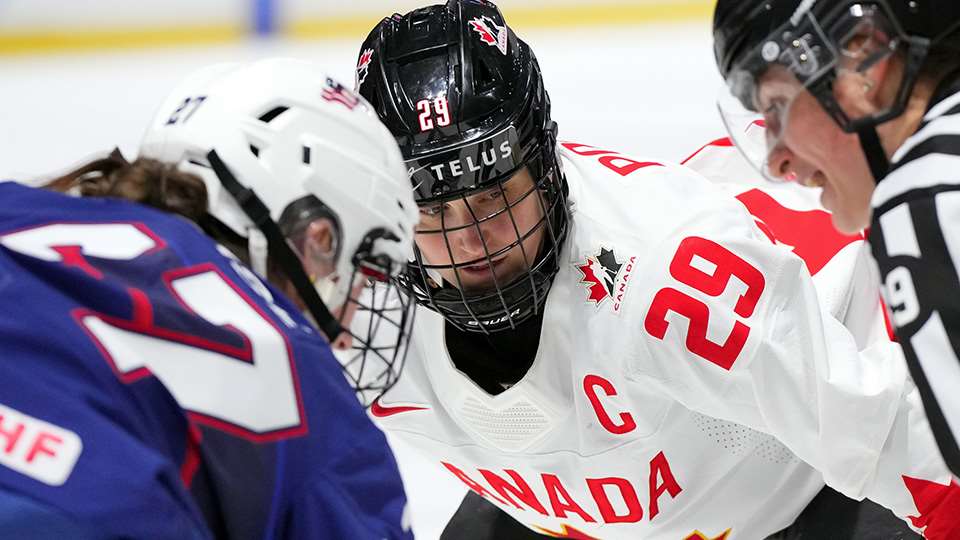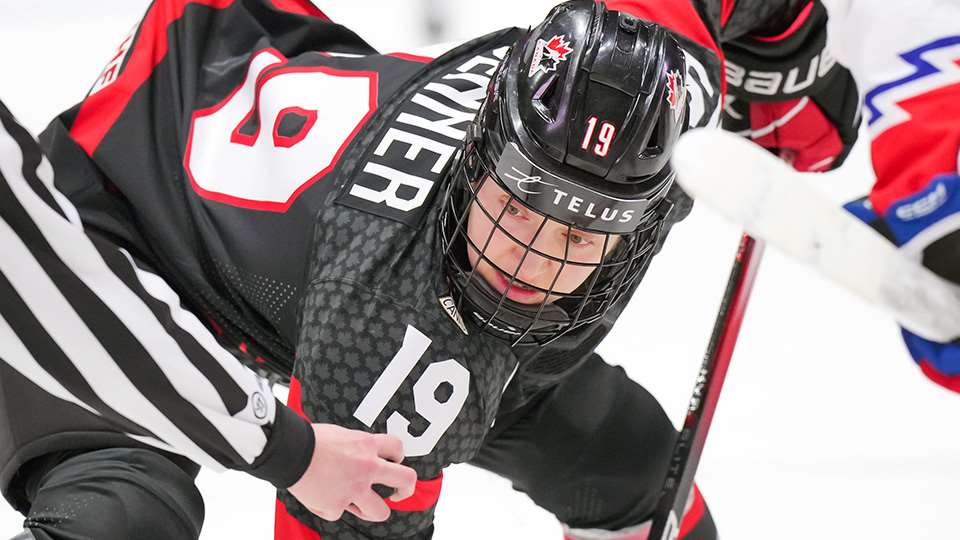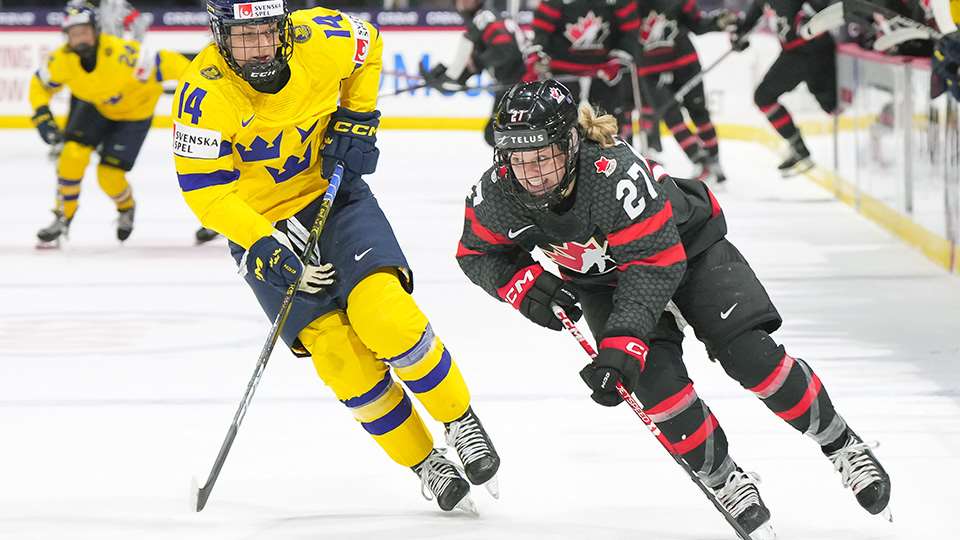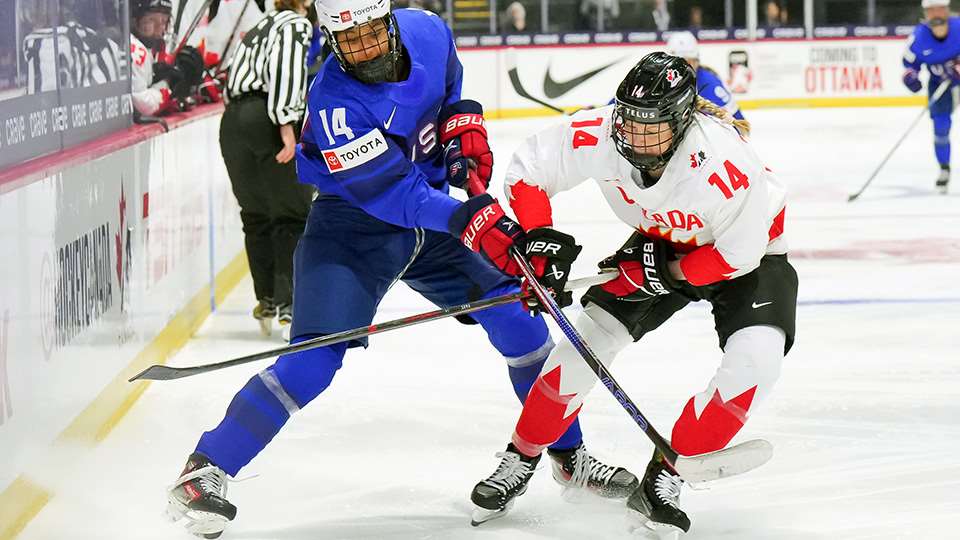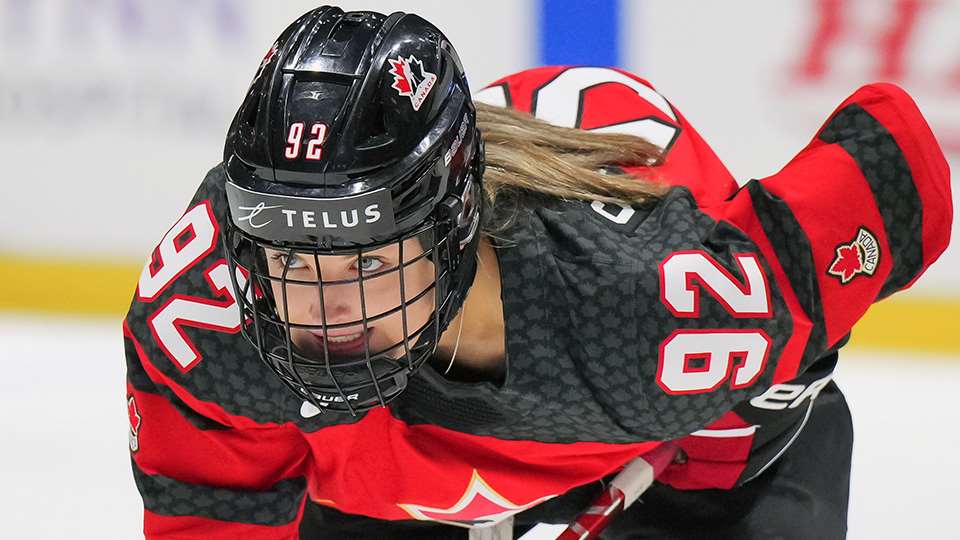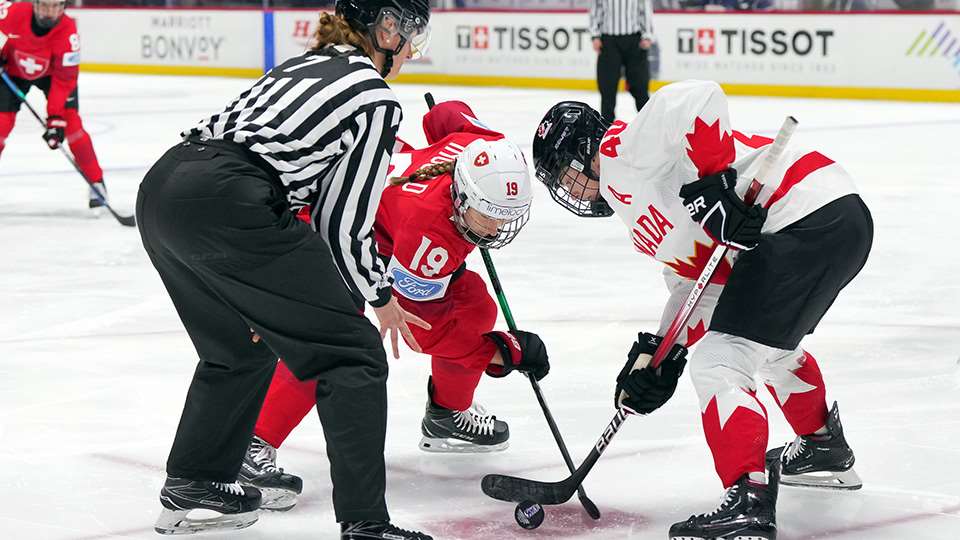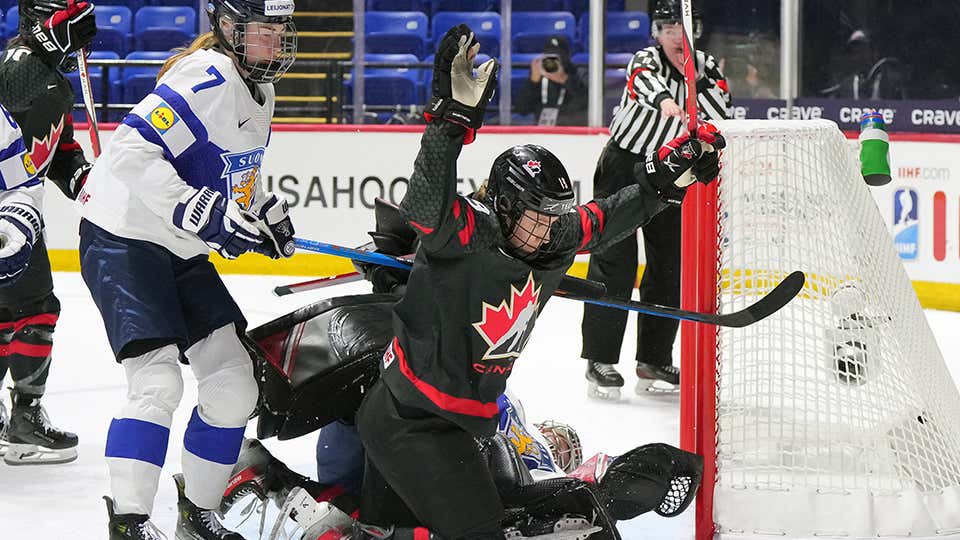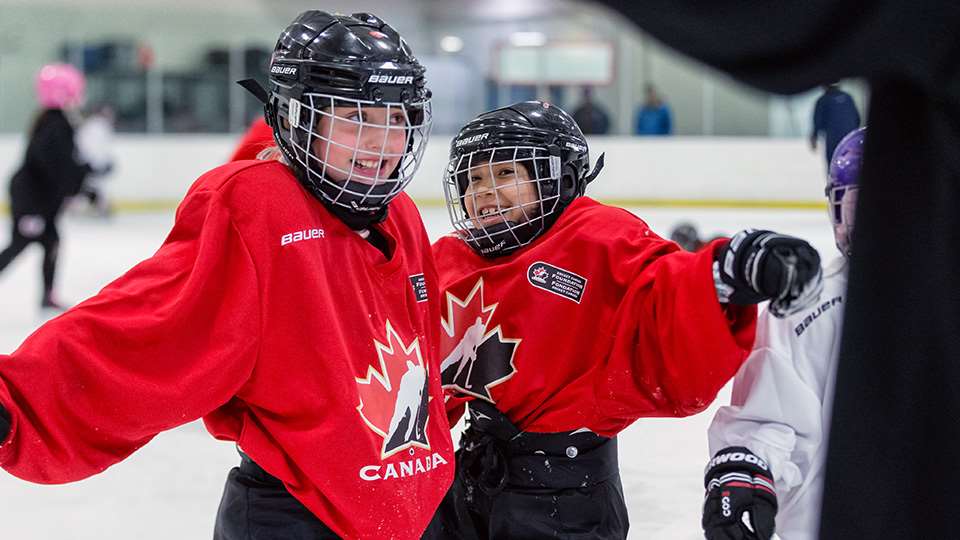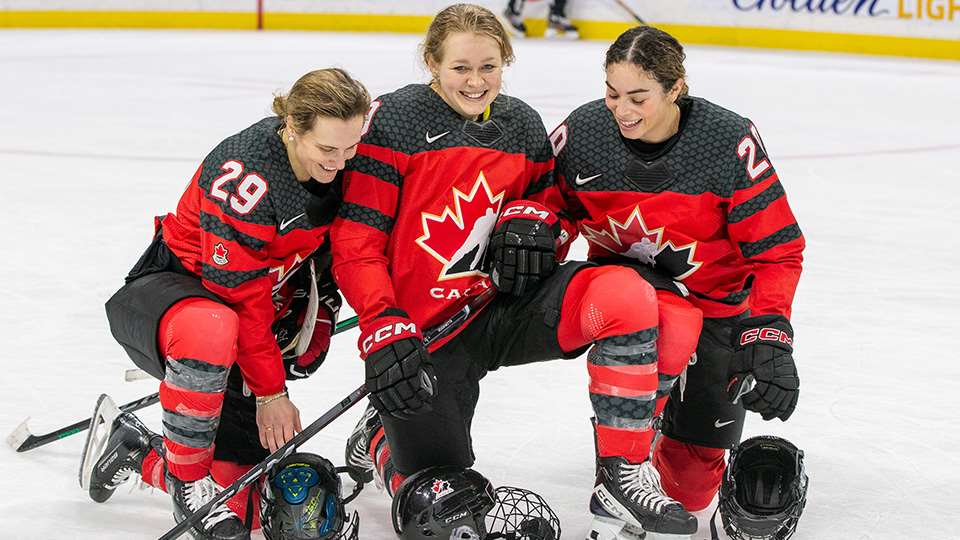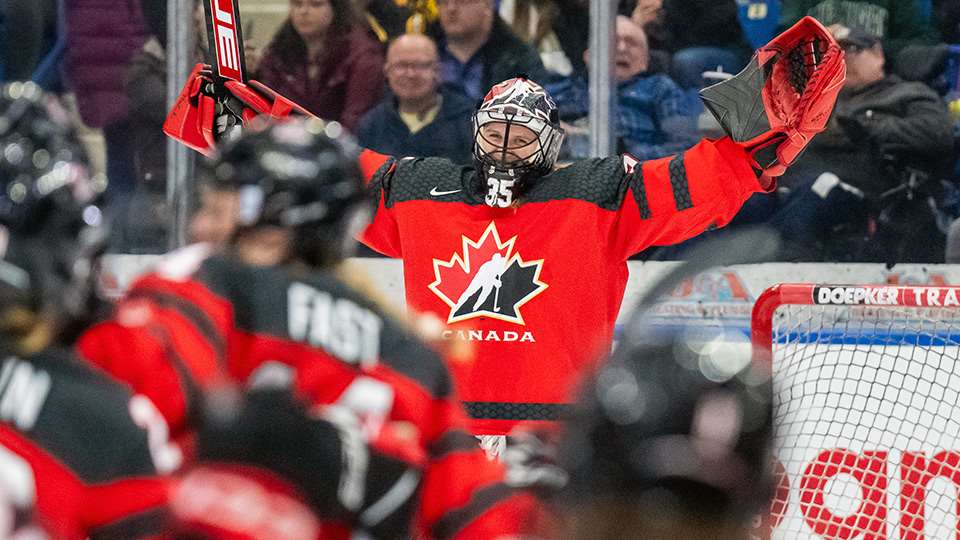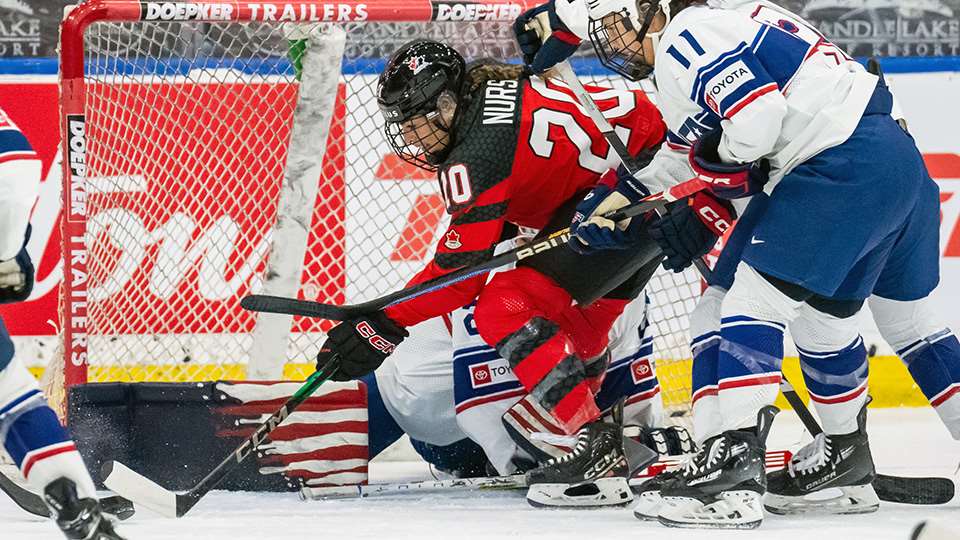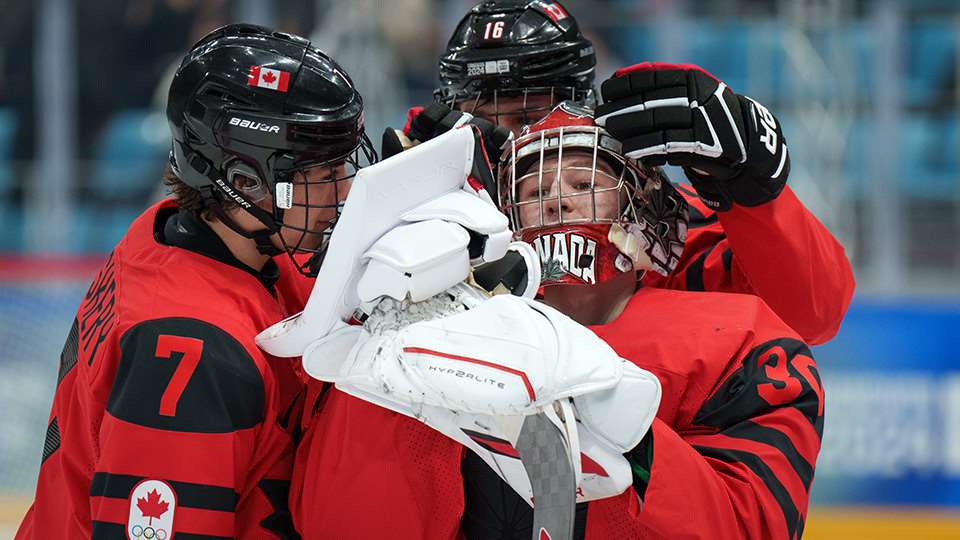
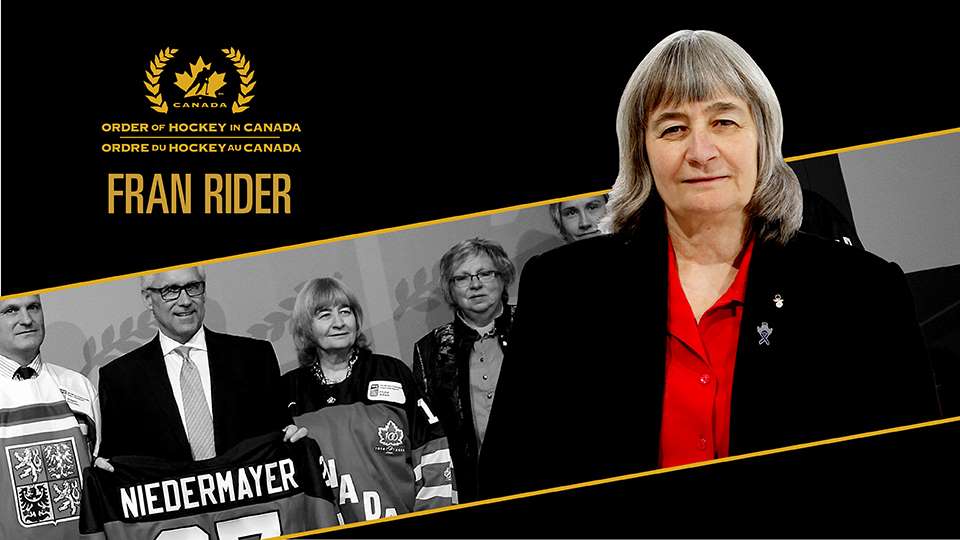

A game of her own
A pioneer in every sense of the word, there is no one who has done more for the growth and success of women’s hockey than Fran Rider

Fran Rider is the first female builder to receive the Order of Hockey in Canada.
Two years ago she was inducted into the IIHF Hall of Fame, the first to gain membership specifically for contributions to building women’s hockey.
Rider was the first recipient of Hockey Canada’s Female Breakthrough Award, in 1998, and the first female recipient of the Hockey Canada Order of Merit, in 1994.
To those in the know, none of these honours are surprising. After all, when it comes to significant contributions to growing, developing and celebrating the women’s game, the first name that comes to mind is Fran Rider.
For Rider, everything – creating the first unofficial women’s world championship; helping form the first IIHF World Women’s Championship; actively pushing for the game’s inclusion in the Olympic Winter Games; chairing six international and two national championship committees; creating the Long Game as part of World Girls’ Hockey Weekend – stemmed from one simple wish: to be involved in the game she’s loved all her life.
“We had a rink in our backyard,” says Rider. “And when I grew up, I was always at the cottage in the summer and played every sport you could play, but my first love was hockey. The lake froze in the winter, so we’d build a rink on the ice.”
Unaware of any organized hockey at the time, Rider was thrilled to just find a game of shinny.
But, in 1967, a spot in the Toronto Telegram advertising a new girls’ hockey tournament in Brampton changed everything. She reached out to the Brampton Canadettes and, having never played before, was placed on a team in the third division.
“We had a nine-year-old and a 44-year-old on our team,” she says. “I was 16, and it was full body-checking, so you go right from figures skates never having played hockey into [playing] with some very good players. It was an incredibly welcoming environment.”
The following year Rider joined a Brampton team, and continued to play in the city for another 30 years. She played in the first Central Ontario Women’s Hockey League – the forerunner of the National Women’s Hockey League and now Canadian Women’s Hockey League – with and against the likes of Angela James and Danielle Goyette. The defenceman also played on the COWHL all-star team.
But a supportive infrastructure wasn’t there yet.
“We’d drive four hours for a league game, and it was three 15-minute periods running time,” she says. “You were lucky to get a full hour of ice because if anybody else was going on, women’s hockey was not a priority.
“Competition was intense, but we understood there were bigger victories to win than one game or one championship.”
She also recognized there were bigger takeaways than trophies or medals. Things like self-esteem, confidence and a feeling of belonging.
Rider volunteered every chance she could – time keeping, score keeping, sitting on league executives and discipline committees. And she found colleagues who shared her vision of not only helping girls and women enjoy the game but also making the game better for them.
In the 1960s, women’s hockey thrived at four large local tournaments. From those came discussions that a more formal network would make the game stronger. In 1975, the Ontario Women’s Hockey Association was formed with Rider as its first executive director. And in 1982, Rider became its president and CEO, the OWHA joined Hockey Canada, and Rider joined Hockey Canada’s Female Council, an involvement that still continues.
Visions of a world championship and a place in the Olympics for women’s hockey existed then, too. Rider repeatedly was told neither would happen in her lifetime. The grassroots, the naysayers said, wasn’t strong enough. What she got, though, was sanction for a world tournament in 1987.
“Probably three months out we had teams if we had money, and we had money if we had teams. We struggled; we really struggled. We didn’t know if we’d get it off the ground. What we did have was the sincere drive from the players.”
At the end of the day, six countries – and one province – competed and another five sent delegates. The strength of the game silenced the skeptics. And in 1990, the IIHF World Women’s Championship was born.
All along Rider made connections and developed relationships with her European counterparts. And every time Rider turned the talk to gathering support for getting the women’s game in the Olympics.
The success of seeing it realized in 1998 was both sweet and bittersweet.
“It was disappointing that Norway didn’t pick it up in 1994, and that some of the top players that got us there – the Angela Jameses and Cindy Curleys – missed the opportunity. It was their skills that drove the world to support [the game].
“[But] it was sort of surreal. I don’t even know if I can put words to it. The support and strength of every country getting behind a women’s hockey team was special to see. It wasn’t something I was feeling for me; it was something for the players.”
That mindset – something for the players – is what still drives Rider and keeps her thinking of an even brighter future.
“The ideal is a girl in every part of Canada has a team available for her to play at a level she’s comfortable with and that builds her goals and dreams and self-esteem.”
When the OWHA first started registration, it had 60 teams, if that. Compare that to now when 45 teams played for the right to advance to the 2017 Esso Cup. Players on 542 teams in 29 different divisions – from Novice C to Senior AA – competed at the 2017 OWHA provincial championships. The OWHA now has over 60,000 members.
Rider would rather deflect attention away from the role she’s played in so many females realizing these dreams, preferring instead to praise the efforts of those who came before her and give thanks to those who’ve worked with her.
Her receiving the Order of Hockey in Canada isn’t about one individual, she says. It’s about one team.
“My philosophy in the game is to try and find the right answers, try and do the right things the best we can, and try and connect with people to work with. I share this with everyone I’ve ever worked with, ever played with and ever played against because it’s a team award. It’s incredibly special.”
For more information: |
- <
- >

















